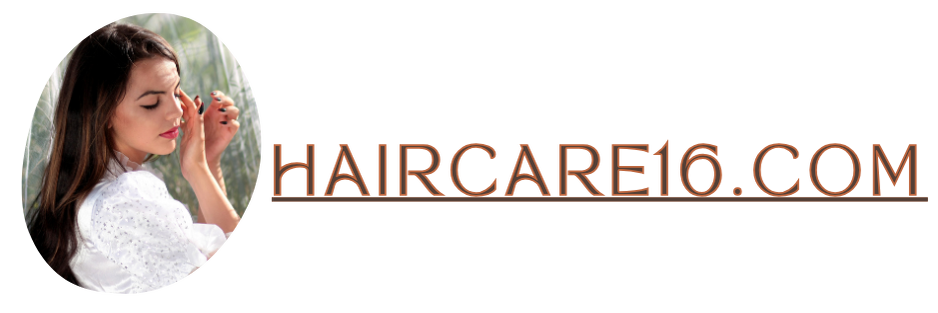Password Generator
Hair care ingredients to avoid: Embarking on the quest for luscious, healthy hair often leads us through a labyrinth of products, each promising miracles in a bottle. However, the path to achieving the mane of your dreams is not just about what you add to your hair care routine, but also about what you avoid. The modern hair care market is awash with ingredients that, while offering short-term aesthetics, can compromise the long-term health and integrity of your hair. In this comprehensive guide, we will explore the key offenders in hair care formulations that you might want to steer clear of, diving deep into why they’re used, the potential risks they pose, and the alternatives that can help maintain your hair's natural beauty and health.
Unlocking Healthier Hair: Hair Care Ingredients To Avoid
1. Sulfates (Sodium Lauryl Sulfate and Sodium Laureth Sulfate)

Sulfates are detergents found in many shampoos and cleansing products. They are responsible for the rich lather and deep cleaning action. However, their strength is a double-edged sword, as they can strip the hair and scalp of natural oils, leading to dryness, irritation, and damage over time. While effective at removing dirt and oil, their harshness can exacerbate hair loss and breakage, particularly for those with sensitive skin or chemically treated hair.
Alternatives: Look for sulfate-free shampoos that use gentler cleansing agents like cocamidopropyl betaine or decyl glucoside, which clean without stripping the hair’s natural moisture.
2. Parabens (Methylparaben, Propylparaben, Butylparaben, and Ethylparaben)
Parabens are widely used preservatives that prevent the growth of bacteria and fungus in beauty products. Despite their preservative properties, parabens can mimic estrogen in the body, potentially leading to hormonal imbalances and have been linked to reproductive issues and increased risk of certain cancers. Their effect on the scalp and hair health, while less direct, can contribute to a weakening of the hair follicle through systemic absorption.
Alternatives: Opt for products preserved with natural alternatives like sodium benzoate, ethylhexylglycerin, or paraben-free products that use airless packaging to maintain product integrity without harmful chemicals.
3. Silicones (Dimethicone, Cyclomethicone, Amodimethicone)
Silicones are synthetic polymers that coat the hair, providing a sleek, smooth finish and making detangling a breeze. While initially beneficial for creating the illusion of healthy hair, silicones can build up over time, preventing moisture, oils, and nutrients from penetrating the hair shaft. This can lead to dry, brittle hair and can exacerbate hair thinning by clogging follicles on the scalp.
Alternatives: Seek out silicone-free hair products that use natural oils and butters for conditioning, such as argan oil, shea butter, or jojoba oil, which nourish the hair without heavy buildup.
4. Formaldehyde and Formaldehyde Releasers (Quaternium-15, DMDM Hydantoin, Imidazolidinyl Urea)
Formaldehyde and compounds that release formaldehyde over time are used in many hair products for their preservative qualities. Exposure to formaldehyde can cause a host of health issues, including allergic reactions, dermatitis, and respiratory problems. In severe cases, it has been linked to cancer. These chemicals can also weaken the hair shaft, making hair more prone to breakage and loss.
Alternatives: Look for products labeled as formaldehyde-free and check for natural preservative alternatives like neem oil, rosemary extract, or grapefruit seed extract.
5. Alcohol (Isopropyl Alcohol, Ethanol)

Not all alcohols are detrimental to hair health; fatty alcohols like cetyl alcohol or stearyl alcohol can actually be beneficial. However, short-chain alcohols like isopropyl alcohol (rubbing alcohol) and ethanol (which acts as a solvent in many formulations) can be extremely drying to the hair. They strip away moisture, leaving the hair brittle and prone to breakage.
Alternatives: Avoid products that list short-chain alcohols high on the ingredient list and opt for those with fatty alcohols or alcohol-free formulations.
6. Synthetic Fragrances and Colors
Many hair care products are made appealing with the addition of synthetic fragrances and colors. However, these additives can cause skin irritation, allergic reactions, and may contribute to overall hair and scalp health degradation over time. They offer no benefits to hair health and are included purely for aesthetic reasons.
Alternatives: Choose hair care products that are fragrance-free or scented with natural essential oils and are colored with natural or no dyes.
7. Phthalates

Phthalates are chemicals used to make fragrances last longer and plastics more flexible. In hair care, they are often hidden under the term "fragrance" or "parfum" and can disrupt the endocrine system, leading to a multitude of health risks. They can also affect the health of your hair by altering hormonal balance.
Alternatives: Look for phthalate-free products or those that use essential oils for fragrance and are transparent about their fragrance components.
Conclusion
The journey to healthy hair involves not only nurturing practices but also informed choices about the products we use. By avoiding these key harmful ingredients, we make a significant move towards maintaining the natural health and beauty of our hair. Remember, the goal is to treat our hair with the same care and scrutiny we give to our skin or our diet. Opting for products with natural, nourishing ingredients supports not only our hair’s health but also the health of our body and the environment.


